Hollow Concrete Block
A hollow concrete block is a block made of concrete that has hollow spaces between its walls. It is used to build different types of walls for different purposes like retaining walls, decorative walls, classic walls, etc. hollow blocks are made of the same ingredients used in poured concrete walls. Gravel, sand, Portland cement, water are used as ingredients.
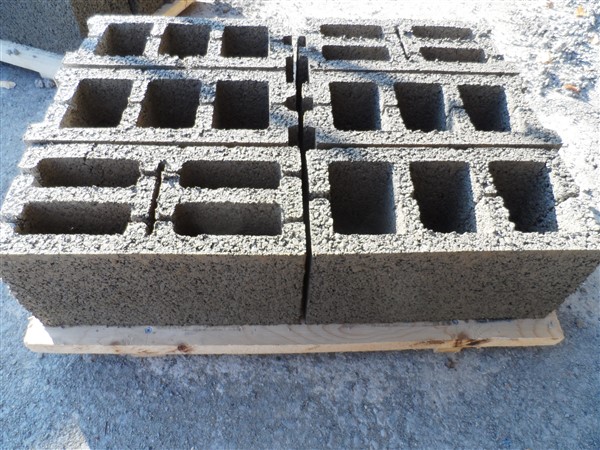
Sometimes fly ash, a waste product from industrial combustion, is used instead of heavier ingredients like sand and aggregate to make the hollow concrete block lighter in weight, easier to handle, and more economical. Some customers also use sawdust powder and mix it in the mortar to have lighter blocks.
In some countries, a hollow concrete block is called a hollow cement block, hollow block, concrete block, and hollow concrete brick as well. Technically it's called a concrete masonry unit as well.
The standard size of a hollow concrete block is 20cm(H)*20cm(W)*40cm(L). It is the international size by which, the size of the hollow block machine is determined. There are other sizes of hollow blocks like 15cm*20cm*40cm and 10cm*20cm*40cm but these are not considered as the main size. The main size will come in handy when you are buying a hollow block machine.
If you fill the empty space between the walls with styrofoam panels then you can produce styrofoam concrete blocks as well but it's another topic.
Also, There are solid blocks used for the foundation of the buildings or as retaining walls as well. It is a whole block made of concrete.
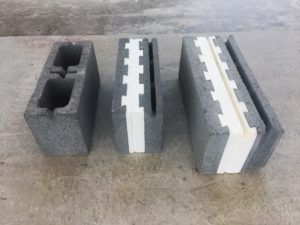
The hollow concrete block is becoming increasingly popular in a wide range of building applications, from residential to industrial. Not only are they highly cost-effective but also, they offer design flexibility, durability, energy efficiency, and resistance to extreme weather conditions.
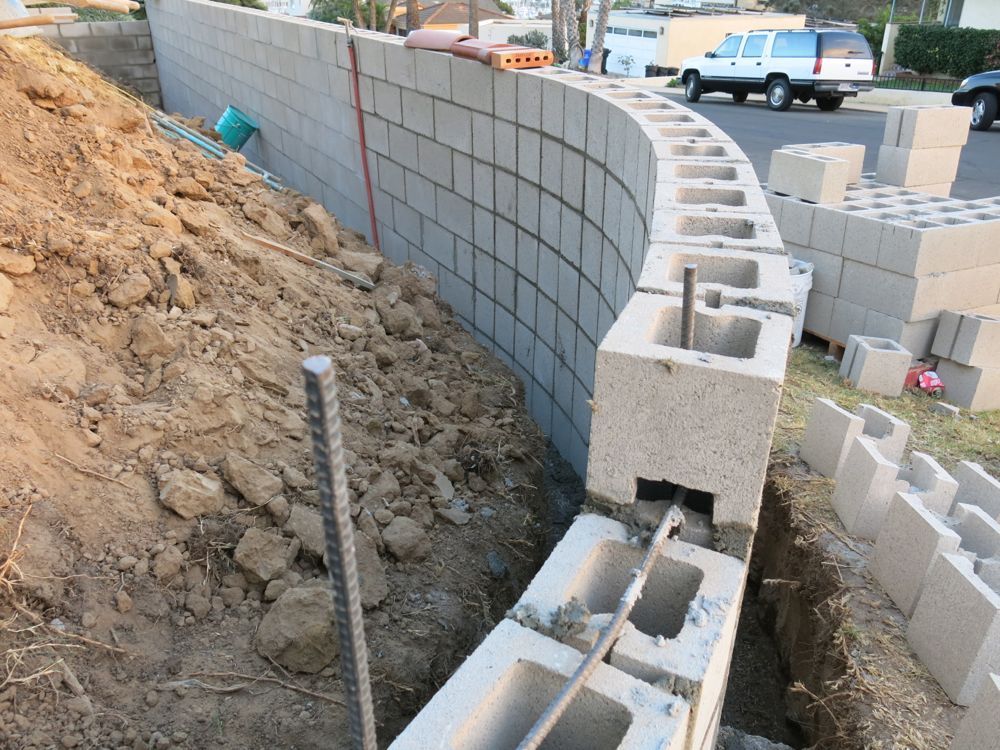
Contrary to what people think, a hollow concrete block foundation isn't inferior to a poured concrete foundation, providing that it's been properly built. Both types of masonry must be laid on a strong, stable footing. Good drainage and damp proofing details are essential.
The hollow block is strongest when the load is brought to bear from top to bottom. It means when it is set in its normal installation orientation, The way the hollow block is most commonly used, to build walls for buildings, the majority of the load is placed on top, pushing toward the ground. But hollow blocks will fail to endure the stress and will break to pieces when they are stressed from the sides.
The hollow blocks are produced in two types generally:
1. bottom closed: this is used for normal walls and blocks are used upside down so when you lay the next layer of blocks, you have a complete area to put concrete on it.
2. Bottom open: It is used in walls that after the wall is completed concrete will be poured inside the hollow spaces.
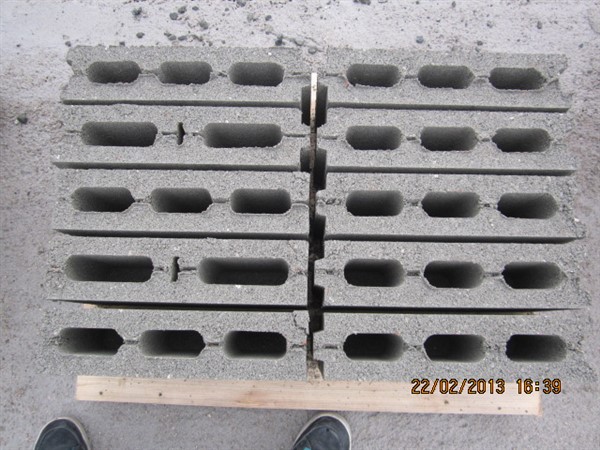
Advantages Of Hollow Concrete Blocks
We discussed hollow concrete blocks generally to have a background about them now we are going to talk about the advantages of hollow blocks over other construction materials:
1. Design Flexibility:
When it comes to design, a hollow concrete block can be shaped into practically anything your architect can come up with. Concrete blocks are extremely flexible building materials and their strength means you can practically build anything you can imagine, from a single floor to multi-story buildings, and add all sorts of accents, including pillars, arches, and more.
Additionally, when used as retaining wall blocks, hollow blocks can be used to enhance your yard as they are easier to shape to the contours of your land and the various levels that need support.
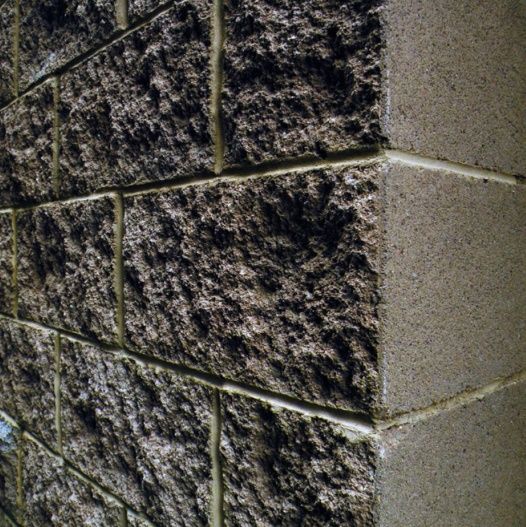
This characteristic is essential these days because having durability alone doesn’t appeal to people anymore. people want their living area to look beautiful and happy as well. Concrete blocks can be used with different decorative materials and give them interesting faces that are more appealing.
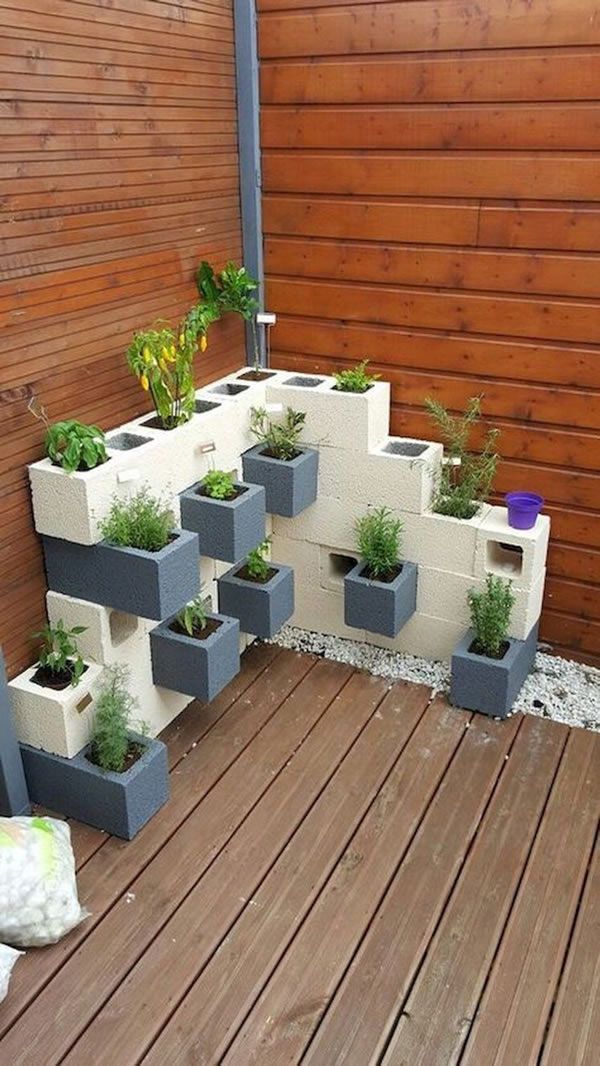
2. Durability:
A building made of hollow concrete Block will last almost forever and requires very little maintenance. Concrete is one of the most durable materials known to us, which means any building will retain its beauty for much longer, especially since concrete is not susceptible to corrosion or other forms of degradation. By building a hollow concrete block wall, you will be investing for the long term since your building will maintain its value as it will not be susceptible to the wide range of problems other building materials are.
3. Energy Efficiency:
A building built with a hollow concrete block will be more cost-effective than a home using bricks but will offer the same level of energy efficiency. This is especially important in hot climate countries since concrete blocks tend to keep interiors cooler for longer, by trapping the cool air inside. This means that you will save a lot of energy and also heating, as the mass of the blocks not only keeps heat out during summer but retains heat indoors for longer during winter.
4. Protect the Value of Your Investment with hollow Concrete Block:
A building built with hollow cement blocks is highly resistant to extreme weather conditions. Thus, hurricanes, floods, and storms will have little impact on a building built with this kind of block. The interiors will be damaged, especially when it comes to flooding, but the structure of the building will remain intact and damage will be significantly reduced.
Likewise, fires pose less of a problem to the structure of a concrete building. A hollow concrete block can take a high degree of heat without cracking or suffering severe damage. Thus, if the worst occurs, at least your building will be safe and won't crumble to the ground.
5. Faster completion of construction:
Compared to other materials used for walls, hollow concrete blocks are taller, so you can build your walls faster, It needs less mortar because there are fewer lines of blocks and there will be less number of blocks in each line because it is bigger than other options.
A concrete block building might not hold much appeal at first, but when you analyze the costs and the benefits, you will soon find that it is the best investment for anyone looking to build a home. Concrete blocks have become increasingly popular due to their efficiency, flexibility, and cost-effectiveness.
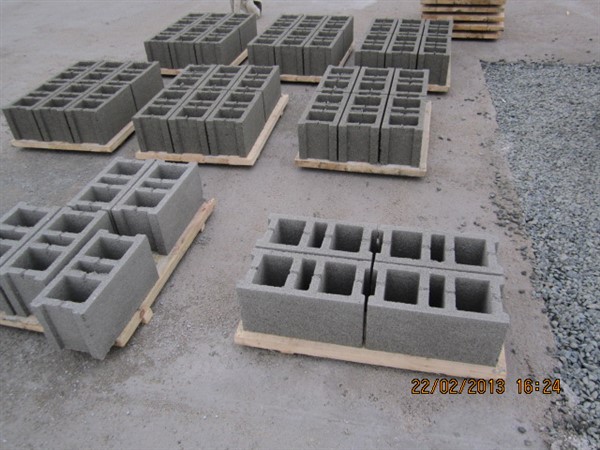
Possible disadvantages of hollow concrete blocks
1. Appearance:
There is nothing in the whole world that has only advantages and not one single disadvantage.
Unfortunately, many people still have the impression that a hollow concrete block is unsightly and utilitarian, but technology has advanced significantly and now these blocks can be treated with various render products and techniques, allowing you to create impressive finishes that look a lot more expensive than they actually are.
Even different colors are added to the mortar these days to produce different colors of blocks. This way you can have the exact color of the blocks you have in mind for the facing of your building and interior walls as well.
2. Water absorption:
Another problem with the hollow concrete block is its ability to absorb water. We are all familiar with the expansion strength of water when it freezes, so we can understand that a retaining wall, one that is in constant contact with the earth behind it, would be wet most of the time.
This cannot be said for the wall of a building that is protected from the rain on the outside and is open to the air on the inside. When the temperature goes below freezing for a long period of time, it freezes the ground, it will also freeze the water in the hollow concrete blocks supporting your retaining wall. Though it may take a few years, depending on the number of freezes you have each year, eventually, cracks will begin to form in both the concrete blocks and the mortar used to hold them together.
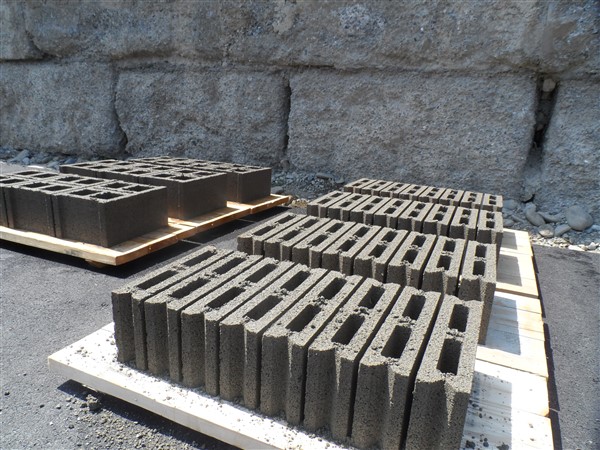
The manufacturing process of hollow concrete blocks
the brick making machine has different molds and each mold can produce a different shape and size of hollow blocks, paving blocks, solid blocks, and curbstones. brick making machine uses pressure and vibration to compress the mortar, so the produced hollow concrete blocks have better quality. The pressing force is usually 150 Bar and the vibration force is normally 36.500kg. this will result in compacted blocks with higher quality and higher durability. Maybe you wonder how a hollow block is made, it is made of cement, water, and aggregate mixed together with a standard ratio, the machine which produces concrete block bricks is called concrete block machine or paving block machine. you can click on them to read the articles related to them. consider that these machines considering their molds can be called interlocking brick machines too.
Producing concrete blocks of any type is a very profitable business. Hollow concrete block is very much in demand due to the advantages it has over other options. And due to the population growth, the need for housing is growing as well. There are many concrete block machine manufacturers in different countries with different capacities and prices, so you have many options to choose from them. but a low-quality concrete block machine will cause you a lot of problems and a production pause. so you need to choose carefully
Hollow concrete blocks are produced on pallets first and when they are dried, they are delivered to euro pallets for international transportation. you can also access our youtube channel for more videos.
Conclusion
It will be best to take some time to analyze all aspects, the pros, and cons of each application, and try to think of it in the long run. If you are also interested in the costs, then the hollow concrete block is the solution for you. With all the advantages mentioned above, they are also remarkably cheaper, with or without labor costs.
If you are new to this business and looking to buy a concrete block machine for the first time, we recommend you start with a small brick making machine which is easier to handle due to its simple mechanism. To get the best hollow blocks business plan you can contact our English department.
 |














